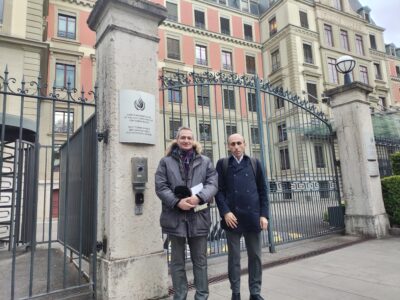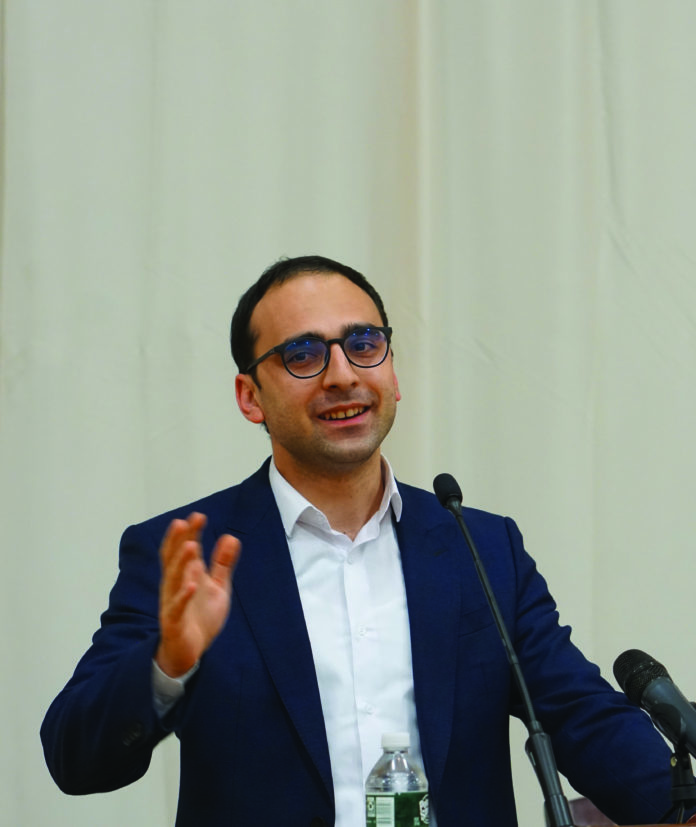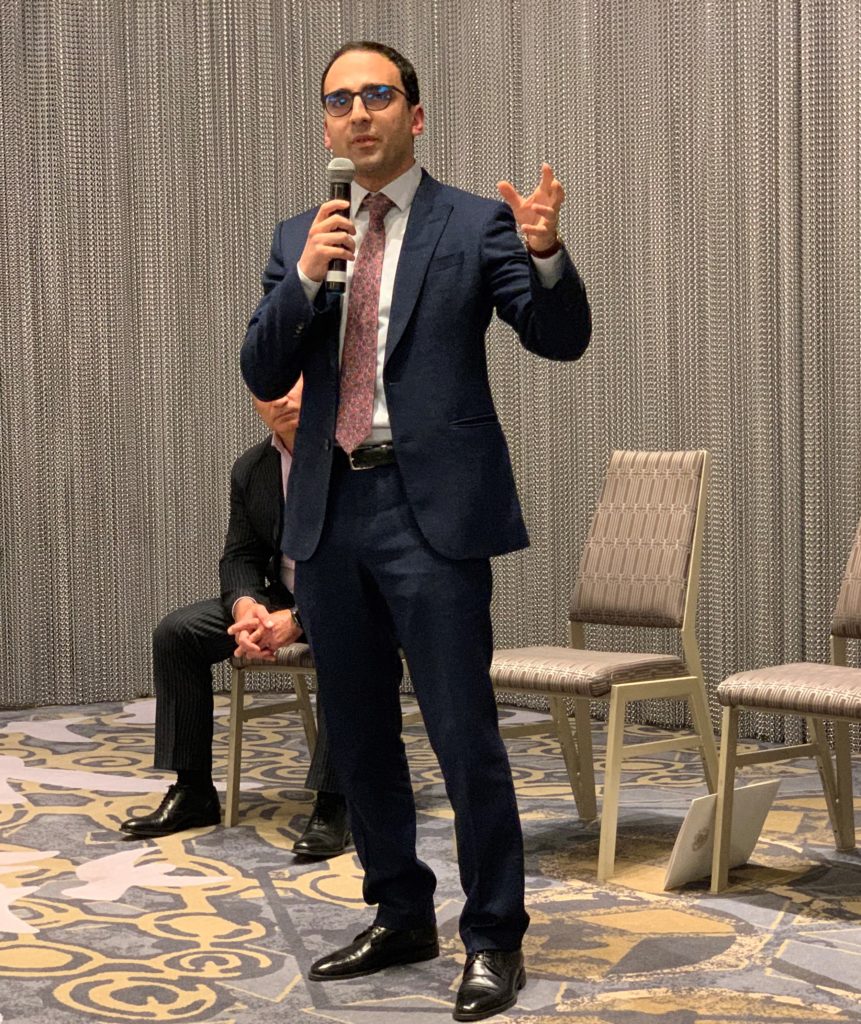CAMBRIDGE, Mass. — Deputy Prime Minister of Armenia Tigran Avinyan visited New York and Boston in mid-July. The main goal of the trip was to participate in a United Nations high level political forum on sustainable development, but he also held many meetings with official colleagues at the UN as well as members of the Armenian communities of both cities.
As deputy prime minister, Avinyan’s fields of coordination include economy, nature protection, agriculture, energy infrastructures and natural resources, transport, communication and IT, nuclear security, statistics and urban development. He spoke about many of these topics at his Armenian community events and during an interview with the Mirror-Spectator.
Background
Born in 1989, Avinyan received his bachelor’s degree in 2009 from the Russian-Armenian (Slavonic) university from the Department of Applied Mathematics, and in 2011 received a master’s degree in mathematical modeling from the same university. He went abroad afterward to London for a one-year program to obtain a master’s degree in finance from the University of Queen Mary in 2014.
Aside from obtaining fundamental knowledge in finance which helps him even today in his work, he became familiar with many cultures and nationalities there for the first time. He exclaimed, “London is a city where during my first three days I heard more languages than during the rest of my life.”











